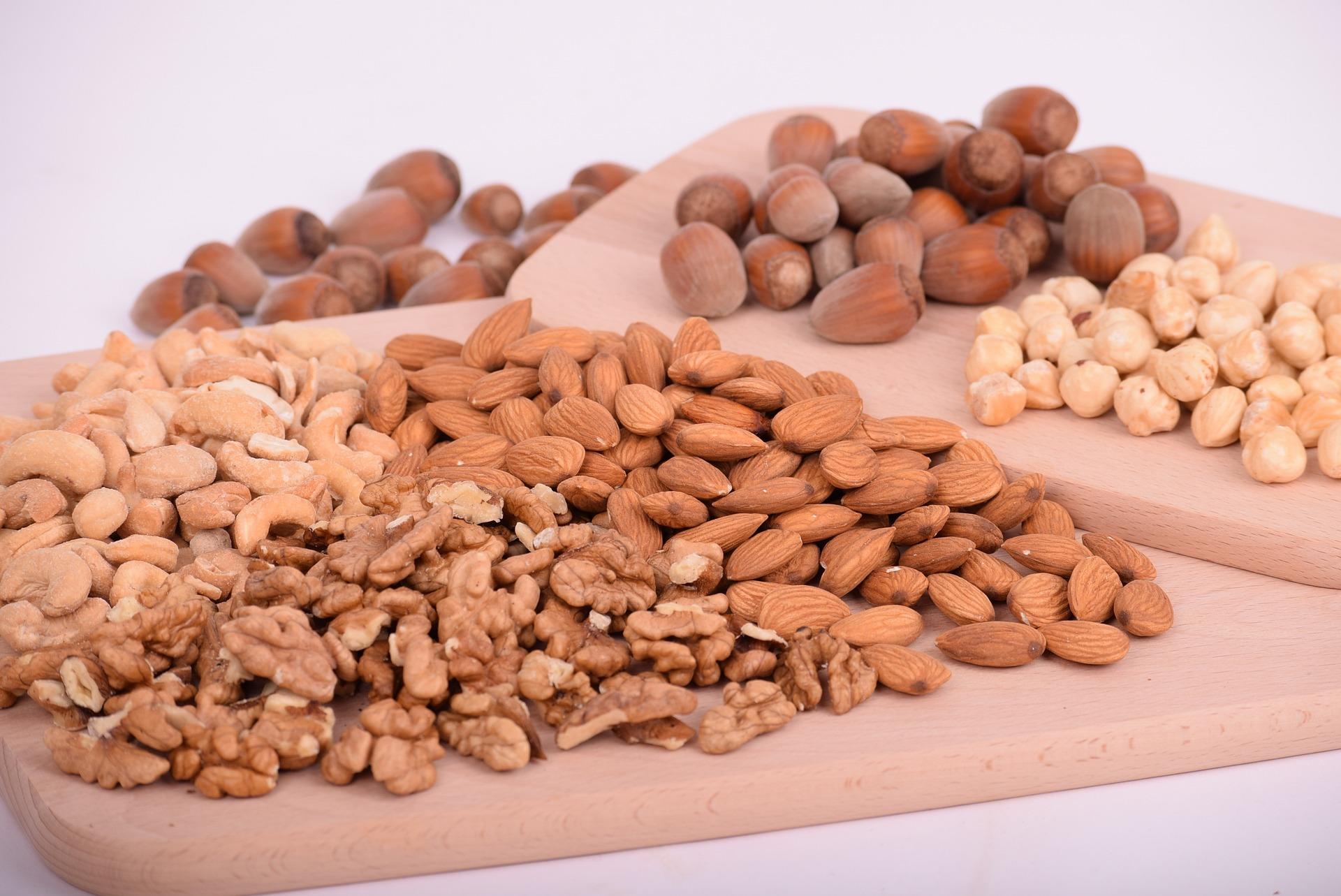People use supplements for a massive range of reasons, including nutritional health, stress, beauty, balancing gut bacteria or boosting the immune system.
With such a vast variety of tempting foods available today, it's no surprise that we miss out on vital nutrients at times, so many decide to supplement their diets.
Supplements and vitamins are popular ways to improve health and wellness, but with so many options available, knowing which ones to choose can be overwhelming. Here are the pros and cons of the most popular supplements and vitamins today.

What are Supplements?
Supplements are anything you may take orally other than medication that supplement the diet, giving you extra minerals, vitamins, or even healthy gut bacteria's for example.
For those living in countries that don't get a lot of sun, it can be easy to become vitamin D deficient, so taking a daily supplement would definitely be something to consider.
Supplements commonly come in the form of capsules and tablets but can also come as powders, sprays, and even energy bars and drinks.
There are lots that fall into the category of 'Supplement' and they help with almost all kinds of ailments. I've put the different types of supplements in a list down below, with a description of what they're used for:
Amino acids
Amino acid supplements are a type of dietary supplement that contain one or more amino acids. There are 20 different amino acids, and our bodies use them to build and repair tissues, including muscles. While our bodies can produce some amino acids, others must be obtained through diet or supplements.
If you're looking for ways to improve your workouts, amino acid supplements may be worth considering. Amino acids are the building blocks of protein, and they play a crucial role in muscle growth and recovery.
There are several types of amino acid supplements, but the most popular ones are branched-chain amino acids (BCAAs), which include leucine, isoleucine, and valine. These amino acids are essential for muscle growth and recovery and are often taken before or after workouts.
Amino acid supplements can be a valuable addition to your fitness routine, providing various benefits such as improved muscle recovery, increased muscle growth, and enhanced fat loss. However, it's important to remember that they are not a magic solution and should be used with other healthy habits, such as a balanced diet and regular exercise.
Pros: Needed to repair tissues and muscles. It can cause enhanced fat loss and play a crucial role in muscle growth.
Cons: In some cases, amino acids can cause bloating, loss of coordination, nausea, fatigue and diarrhoea.

Botanicals & Botanical Compounds
Botanical compounds have been used for centuries for their medicinal properties. In recent years, there has been a surge of interest in using botanical compounds as supplements to support overall health and wellness. Here's a closer look at botanical compound supplements and how they can benefit your health:
Botanical compound supplements are natural plant-based supplements that contain concentrated amounts of phytochemicals, such as flavonoids, polyphenols, and alkaloids, which have been shown to provide numerous health benefits.
They are extracted from various parts of plants, such as leaves, roots, flowers, and stems, and are available in a variety of forms, including capsules, powders, and tinctures.
These compounds have been shown to provide numerous health benefits, including:
- Supporting Immune Health: Botanical compounds such as echinacea, elderberry, and garlic are known for their immune-boosting properties and can help to prevent and treat infections.
- Reducing Inflammation: Botanical compounds such as curcumin, found in turmeric, and gingerol, found in ginger, have been shown to have anti-inflammatory properties and can help to reduce inflammation throughout the body.
- Improving Cognitive Function: Botanical compounds such as ginkgo biloba and bacopa have improved memory and cognitive function.
- Supporting Cardiovascular Health: Botanical compounds such as resveratrol, found in grapes, and quercetin, found in apples, have been shown to help cardiovascular health by reducing inflammation and improving blood flow.
- Promoting Digestive Health: Botanical compounds such as peppermint and ginger can help to soothe digestive issues such as nausea, bloating, and gas.
Pros: Can boost the immune system, reduce inflammation, improve memory and cognitive function, improve blood flow and soothe digestive issues.
Cons: There is not much research done on the accuracy of botanicals in helping with our health.
Fish Oils
Types of fish oil supplements
Fish oil supplements are popular among health-conscious consumers due to their high omega-3 fatty acid content.
Omega-3 fatty acids have been shown to have a range of potential health benefits, including reducing inflammation, helping lower blood pressure, and improving mental clarity and focus.
The most popular oils are from cold-water fatty fish such as salmon, mackerel, tuna, and sardines. They are usually sold in pill form or as liquid oil.
Pros: Omega-3 fatty acids are essential for heart health and may also have anti-inflammatory effects. They can be found in fatty fish like salmon or taken as a supplement.
Cons: Some people may experience side effects like a fishy aftertaste or digestive issues when taking omega-3 supplements. Some fresh fish oils may also contain contaminants such as mercury and PCBs
Additionally, they can interact with certain medications, so talking to a healthcare professional before starting a supplement is important.
Glucosamine
As we age, it's natural for our joints to experience wear and tear, resulting in joint pain and stiffness. Glucosamine supplements have become increasingly popular as a natural remedy for joint pain and arthritis.
Glucosamine is a natural compound found in the human body. It plays a crucial role in building and repairing cartilage, cushions our joints and allows for smooth movement. As we age, our bodies may not produce enough glucosamine to keep up with the wear and tear on our joints, resulting in joint pain and stiffness.
Glucosamine supplements are made from shellfish, such as shrimp, lobster, crab, or fermented grains. They are available in various forms, including capsules, tablets, and powders.
Glucosamine supplements work by stimulating the production of cartilage, which helps cushion our joints. They also contain anti-inflammatory properties, which can help reduce joint swelling and pain.
In addition, it's crucial to choose a high-quality glucosamine supplement from a reputable source. The supplement industry is largely unregulated, possibly producing low-quality or contaminated products. Look for supplements independently tested and certified by third-party organisations, such as NSF International or USP.
Pros: Natural remedy for joint pain. It repairs and builds cartilage and contains anti-inflammatory properties that reduce swelling and pain.
Cons: Unfortunately, there are many not so fun side effects sometimes experienced with Glucosamine, including; Constipation, diarrhoea, drowsiness, headaches, heartburn, nausea and rashes.

Minerals
Minerals are essential for our bodies to function properly, and sometimes we don't get enough from our diets alone. Being too deficient in certain minerals can eventually cause fatigue, weakening of the bones or a decreased immune system.
Mineral supplements are designed to provide your body with the necessary minerals that it needs to function correctly. They can help with various issues, from supporting bone growth and maintaining healthy blood pressure to improving energy levels and preventing anaemia.
There are many different types of mineral supplements, each with its own set of benefits;
- Calcium: Calcium is essential for strong bones and teeth and can help with muscle function and blood clotting.
- Iron: iron is necessary for producing haemoglobin, which carries oxygen in the blood. Iron supplementation can help prevent anaemia.
- Magnesium: Magnesium is vital for bone, nerve, and heart health.
- Zinc: Zinc is necessary for wound healing, immune function, and DNA synthesis.
- Selenium: Selenium is an antioxidant that can help protect against cell damage and may also help with thyroid function.
While mineral supplements can be beneficial, they can also cause side effects if taken in excess. It's important to follow dosage instructions carefully and to avoid taking more than the recommended amount.
You should also be aware that certain minerals can interact with medications or other supplements, so always talk to your doctor before starting any new supplements.
Pros: Staying alive! Without these minerals, our bodies would not be able to function.
Cons: With certain minerals like iron, it can be hazardous to take more than the recommended dose and can even result in death.
Live Microbials/Probiotics
Live microbials, also known as probiotics, are supplements that contain beneficial bacteria and yeasts that can help improve your overall health and well-being.
Probiotics are often taken in capsule form and can help to restore balance to the digestive system, boost immunity, lower cholesterol, reduce inflammation, improve mental clarity, and more.
Probiotics can help restore balance in the gut by increasing the number of beneficial bacteria, improving digestion and absorption of food and nutrients.
This can also help relieve symptoms associated with irritable bowel syndrome and other digestive issues. Also, studies have shown that probiotics can help reduce cholesterol levels.
Pros: Probiotics are beneficial bacteria that can help improve gut health and boost the immune system. They can be found in fermented foods like yoghurt or taken as a supplement.
Cons: Not all probiotics are created equal, and the strains and doses can vary widely between products. It's important to choose a reputable brand and talk to a healthcare professional before starting a supplement.
Vitamins
Vitamins are essential micronutrients that the body needs to function correctly. Vitamins are broken down into two categories: fat-soluble vitamins and water-soluble vitamins. Vitamins play a crucial role in maintaining good health, growth, and development. Many different types of vitamins are available on the market, each with its own pros and cons.
Our bodies need these essential vitamins to grow, develop and function normally:
Vitamin A — There are two vitamin A’s, fat-soluble vitamins, and they play a big part in growth, reproduction and development.
Vitamin B — There are 8 vitamin B’s: B1, B2, B3, B5, B6, B7, B9 & B12, which are water-soluble vitamins that create energy for our bodies.
Vitamin C — Vitamin C is a water-soluble vitamin which plays a massive role in our immune system and in preventing us from becoming ill.
Vitamin D — Vitamin D’s are fat-soluble vitamins and is also absorbed from the sun. And there are two types, D2 & D3, which both help give us strong bones and teeth.
Vitamin E — The 8 Vitamin E’s are all fat-soluble vitamins and are our bodies' very own natural antioxidants. Helping to defend the body against illness and maintain healthy eyes and skin.
Vitamin K — Vitamin K is fat-soluble, and there are three forms; K1, K2 & K3. Vitamin K's main purpose is to prevent blood clotting and heal wounds, amongst much more.
Pros: The different vitamins perform hundreds of jobs inside your body, so ensuring you're not deficient is pretty important.
Cons: Like most things, when taken in large amounts, they can cause toxicity in the body that you may notice through symptoms such as itching, flushed skin or a headache.

The Final Pros & Cons
All in all, supplements clearly do a lot more good than bad, but still, we must always be aware of possible side effects that come with some in and always follow the recommended dose.
Pros: Supplements do a lot, from ensuring babies are born fit and healthy to repairing muscles. They are a quite literal necessity in life and are super helpful if being healthy is essential to you.
Cons: There is always a risk when taking supplements that they could be counterfeit and not what is advertised on the packaging. Be sure to look for labels indicating they have been independently tested and certified by third-party organisations, like NSF or USP.
Supplements and vitamins can be a helpful addition to a healthy lifestyle, but it's important to choose wisely and follow the recommended dosage. It’s always good to talk to a healthcare professional before starting a supplement and get nutrients from a balanced diet whenever possible.
Summarise with AI:















